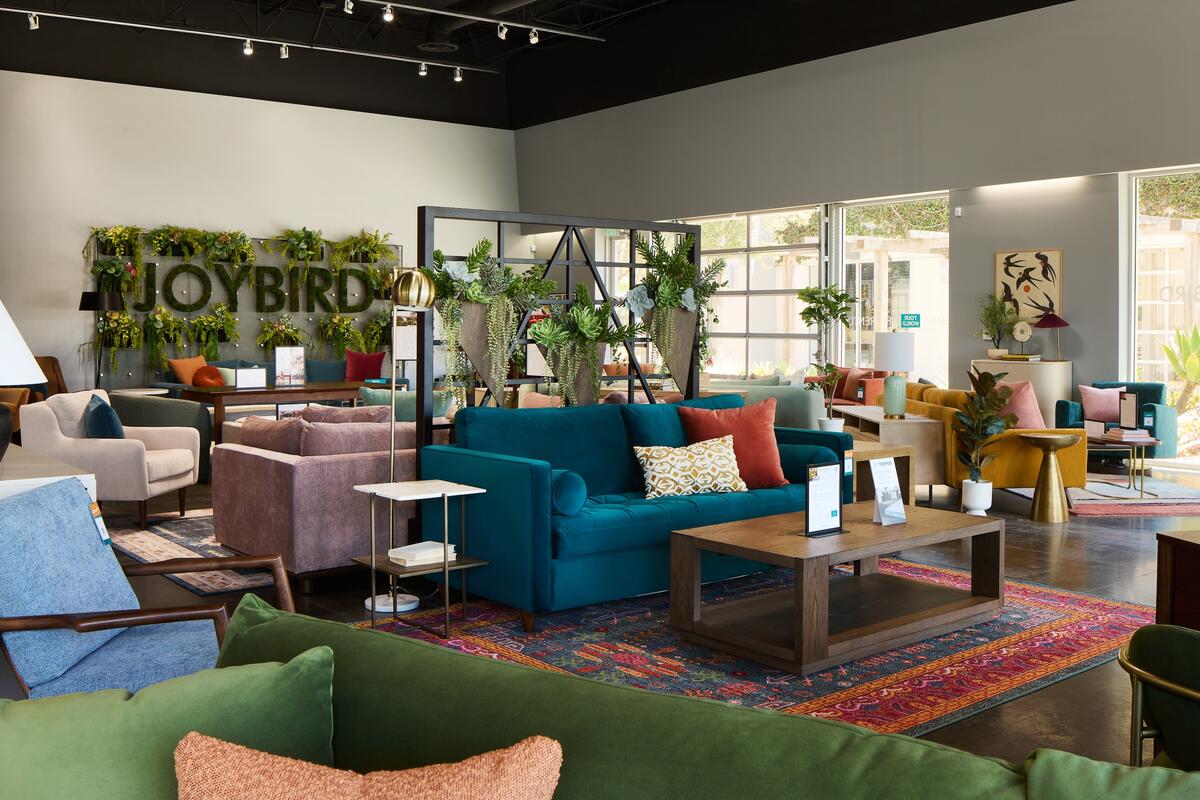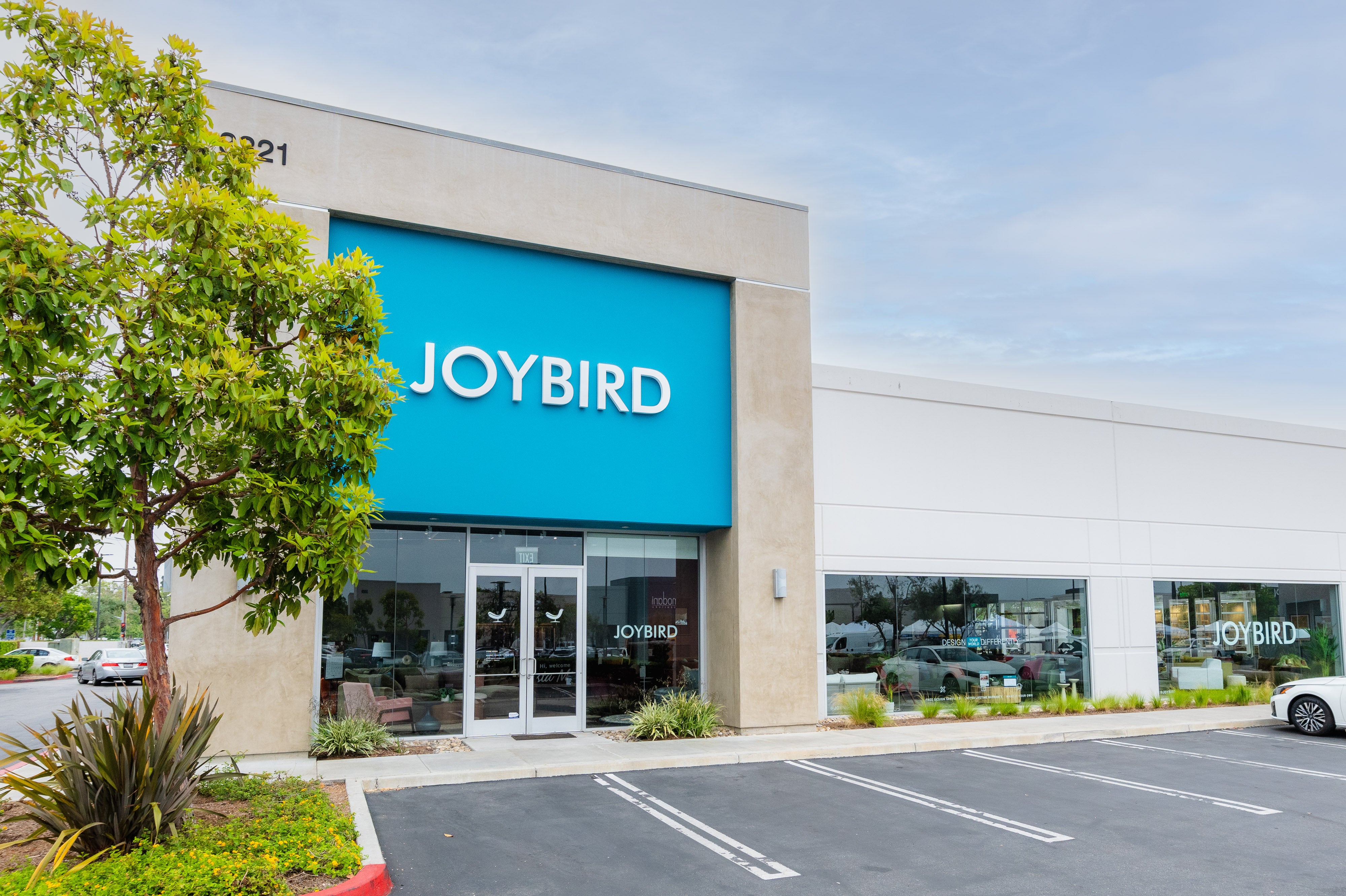The path from DTC success to physical retail prowess is now littered with examples of what not to do. But as higher-profile brands stumble, Joybird has been quietly expanding its fleet of stores. The digitally native millennial-centric brand just opened its 13th location—and is on its way to almost doubling that count in the next several years. You also might not be aware that most of its midcentury modern–leaning products are made in North America, shielding it from the worst of the current tariff traumas.
And chances are, you don’t know it is owned by one of the largest furniture companies in the world, having been acquired by La-Z-Boy in 2018.
But most of all, you should know that Joybird is not only growing its store base—it’s also growing both its top and bottom lines. In a furniture sector that remains sluggish, with many DTC brands struggling to get their business models to work, Joybird has racked up some impressive achievements.
“Joybird’s sales were up 5 percent in our last fiscal year, and we have positive operating margins,” says Tj Linz, president of La-Z-Boy’s portfolio brands division, which includes Joybird and the nameplates Hammary, England Furniture Co., Kinkaid and American Drew. “We remain committed to expanding our business.”
The latest store opening is in Costa Mesa, California, in a nearly 300,000-square-foot outdoor center called the South Coast Collection, which is focused on home furnishings and lifestyle brands. It is just a few highway exits down the road from the iconic South Coast Plaza in wealthy Orange County, and at over 4,500 square feet, the new Joybird retail space sits neatly in the middle of the 2,500-to-7,000-square-foot range of the company’s fleet.

Another Southern California location will open later this year in nearby Mission Viejo, and Linz says there are more to come before the end of Joybird’s fiscal year next spring: “We see at least 25 Joybird stores over the next several years.” He adds that the outposts will be located in both existing and new markets for the brand, in a mix of lifestyle centers like the South Coast Collection and stand-alone locations.
For Joybird, the expansion continues its climb from a niche upholstery brand founded in 2014 to one with a more fleshed-out furniture and home decor retail strategy. At the time of the purchase, the companies said Joybird was doing about $55 million a year, but La-Z-Boy no longer breaks out its sales separately. The parent company registered consolidated revenues of about $2.1 billion last year, and has generally been outperforming the overall furniture sector, which continues to suffer from its post-pandemic hangover of reduced demand and higher prices.
Like its parent company, Joybird makes most of its products in North America, a decided advantage in these tariff times. Its upholstery assortment includes over 300 silhouettes and 75 fabrics, targeting a millennial (or millennial-influenced) customer interested in customized selections with quick deliveries—often as fast as seven to 10 days.
And with a true omnichannel strategy, Linz notes that it’s impossible to assign sales to in-store versus online shoppers given the crossover in the shopping process. Even so, he says the company is committed to growing both in tandem—unlike some DTC players that seem to be scaling back their plans for stores.
Joybird’s customer, says Linz, “ranges from creative home-DIYers to interior designers that shop [the brand] for handcrafted custom furniture and unique decor pieces at great prices.” They also value Joybird’s sustainability positioning, which now includes some upholstery made of 100 percent recycled materials. “Our consumer sees sustainability as equal to design, and we’re always looking to do more in this area.”
Even as the furniture business remains mired in a marketplace where housing, tariffs and higher prices are weighing it down, Linz says the prospects for Joybird look good: “We remain focused on all the things we can control, and we’re going to continue to expand the brand.”
____________
Warren Shoulberg is the former editor in chief for several leading B2B publications. He has been a guest lecturer at the Columbia University Graduate School of Business; received honors from the International Furnishings and Design Association and the Fashion Institute of Technology; and been cited by The Wall Street Journal, The New York Times, The Washington Post, CNN and other media as a leading industry expert. His Retail Watch columns offer deep industry insights on major markets and product categories.





























